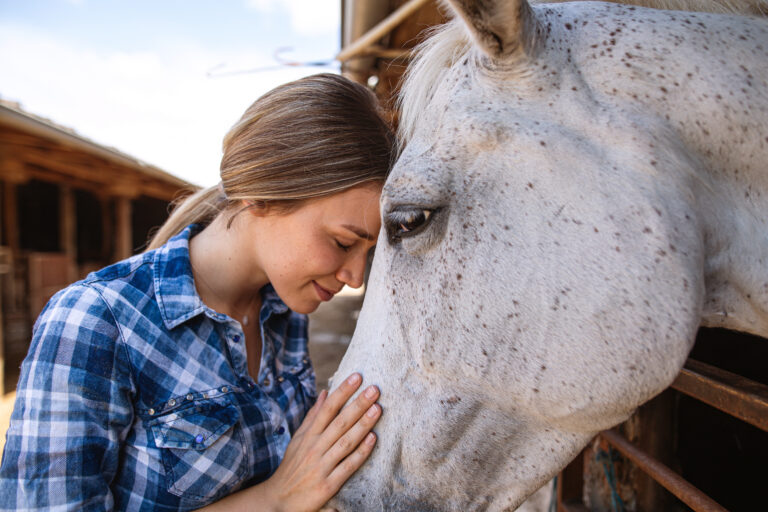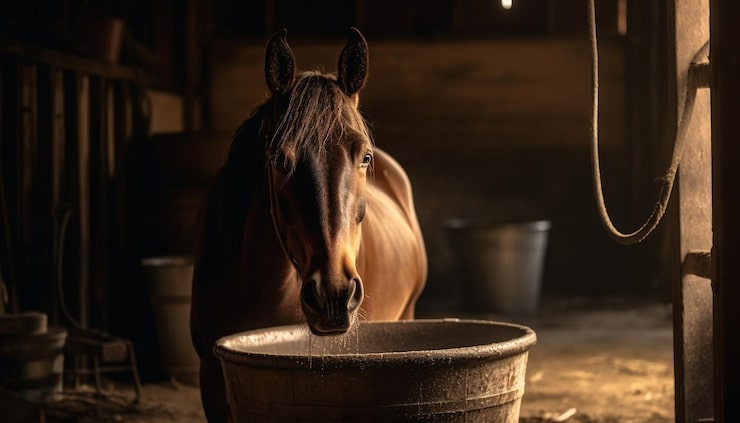As horses age, their needs and care requirements evolve. Understanding how to keep senior horses happy is crucial for maintaining their health and well-being. Whether you’re a seasoned equestrian or a new horse owner, ensuring your senior horse’s happiness involves a combination of proper nutrition, regular exercise, routine health checks, and a comfortable living environment.

Understanding the Aging Process in Horses
Just like humans, horses experience changes as they age. Their metabolism slows down, dental issues may arise, and they might face joint stiffness or other health challenges. Recognizing these changes early can help you adapt their care to ensure they remain happy and healthy.
The Importance of Regular Veterinary Check-Ups
Regular veterinary check-ups are essential for senior horses. These visits help in early detection of potential health issues and ensure that your horse receives appropriate vaccinations and dental care. For more insights on maintaining your horse’s health, visit Senior Horse Annual Checkup.
Nutrition: Feeding Your Senior Horse
As horses age, their dietary needs change. It’s crucial to provide a diet that supports their aging bodies. Senior horse feeds are specially formulated to offer the necessary nutrients while being gentle on their digestive systems. For more information, check out Senior Horse Digestive Support.
Exercise and Mobility for Senior Horses
Exercise is vital for maintaining a senior horse’s muscle tone and joint health. However, it’s essential to tailor the exercise regime to their abilities. Gentle, consistent workouts can keep them fit without causing strain. Learn more about suitable exercise routines at Exercise for Older Horses.
Stretching and Flexibility
Incorporating stretching routines can help improve your horse’s flexibility and prevent stiffness. Regular stretching can also enhance circulation, contributing to overall well-being. Discover effective routines at Senior Horse Stretching Routines.
Providing a Comfortable Living Environment
A comfortable and safe living environment is vital for senior horses. Ensure their bedding is soft and supportive to prevent sores and discomfort. For tips on the best bedding options, visit Best Bedding for Senior Horses.
Socialization and Mental Stimulation
Horses are social animals, and maintaining their social interactions is key to their happiness. Ensure they have companionship and engage in activities that stimulate their minds. This could include training sessions, games, or simply spending time together.
Addressing Common Health Issues
Senior horses are prone to certain health conditions, such as arthritis and respiratory problems. Being proactive in managing these issues with the help of your veterinarian can improve their quality of life. For expert advice, consider visiting external resources like the American Association of Equine Practitioners.
The Role of Supplements in Senior Horse Care
Supplements can play a significant role in supporting your senior horse’s health. From joint supplements to digestive aids, choosing the right products can help address specific needs and enhance their overall well-being.
Ensuring Adequate Hydration
Hydration is critical for all horses, but especially for seniors. Ensure they have access to clean, fresh water at all times. In colder months, consider providing warm water to encourage drinking.
Recognizing Signs of Discomfort or Illness
Being attentive to changes in your horse’s behavior or physical condition is essential. Early detection of discomfort or illness can lead to quicker and more effective treatment.
Creating a Routine
Establishing a consistent daily routine can provide comfort and stability for senior horses. Consistency in feeding, exercise, and social interactions helps them feel secure and content.
Conclusion: Ensuring a Happy Life for Senior Horses
Keeping senior horses happy involves a holistic approach that addresses their physical, mental, and emotional needs. By understanding their unique requirements and making thoughtful adjustments to their care, you can provide them with a fulfilling and joyful life.

Frequently Asked Questions
How often should a senior horse see a vet?
Senior horses should have veterinary check-ups at least twice a year to monitor their health and address any issues promptly.
What is the best diet for a senior horse?
A diet rich in fiber, low in sugar, and supplemented with vitamins and minerals is ideal for senior horses. Specially formulated senior feeds are often recommended.
How can I improve my senior horse’s joint health?
Regular exercise, joint supplements, and maintaining a healthy weight can help support joint health in senior horses.
This article contains affiliate links. We may earn a commission at no extra cost to you.
